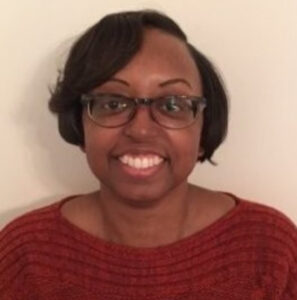Research Pride Month is, of course, a celebration of the profession of prospect research and the work we do that has transformational power on the potential (and actual) fundraising success of nonprofit organizations. But just like the wider field of fundraising, about 99% of people who become prospect development professionals simply ‘fall into’ this career. It’s not widely known as a possible career path – there are no job fairs, no recruiters coming to high schools and colleges to talk it up – so it’s important that we do what we can to let people know that this great career path exists. Today’s article by my colleague HBG Consultant Karla Davis is a conversation of sorts with her fellow library science degree holders, in the hopes that they will also decide to be future Prospect Research Pride celebrants. ~Helen
In the same way that I describe myself as a Detroiter even though I haven’t lived in my hometown for two decades, I still refer to myself a librarian. When I get together with my fellow librarians, one topic is sure to come up for discussion. No, it’s not the library fight scene in John Wick 3: Parabellum. (Was I the only one who groaned in the theater when Mr. Wick reshelved the bloody book he’d used as a murder weapon?)
My friends and colleagues are more interested in how I’ve been using my library degree outside of the field. I’m happy to answer their questions because I enjoy my work, and I believe the best recruiters for development are those already doing the job.
The top three questions librarians ask me are:
What’s your job?
To be fair, family members ask the same question. I try to keep my answer simple: I research individuals and companies for my nonprofit clients. The clients typically want this information to identify prospective donors for their organizations.
Will my skills translate to this kind of work?
I think librarians are uniquely suited for prospect research work. They already know how to conduct reference interviews and have experience using online databases for research. However, those with an innate curiosity and affection for research can be trained to do the work. I’ve met people with all sorts of educational and occupational backgrounds in this field. My acquaintances are surprised to learn that I’ve worked with people who earned degrees in music, history, law and English. Prospect research seems to be a second profession for a lot of people, similar to librarianship.
How should I get started?
Playing into the stereotype that librarians love to read, I always recommend books about prospect research.
I also encourage librarians to join their local Apra chapter and start attending events. I’ve met people interested in the field at these events and given informational interviews on the spot.
Volunteering at a nonprofit can provide insight into how the development office functions.
As I reflect on my employment history, I see missed opportunities to recruit me into the professions I ultimately chose. Despite working in both my elementary and high school libraries, no one questioned if I had an interest in librarianship as a career. Later, I worked in a medical school’s alumni office, unaware of its connection to the larger fundraising operation.
I keep these experiences in mind when I’m fielding questions from my librarian acquaintances, and I rejoice each time one of them decides to apply for development jobs.

